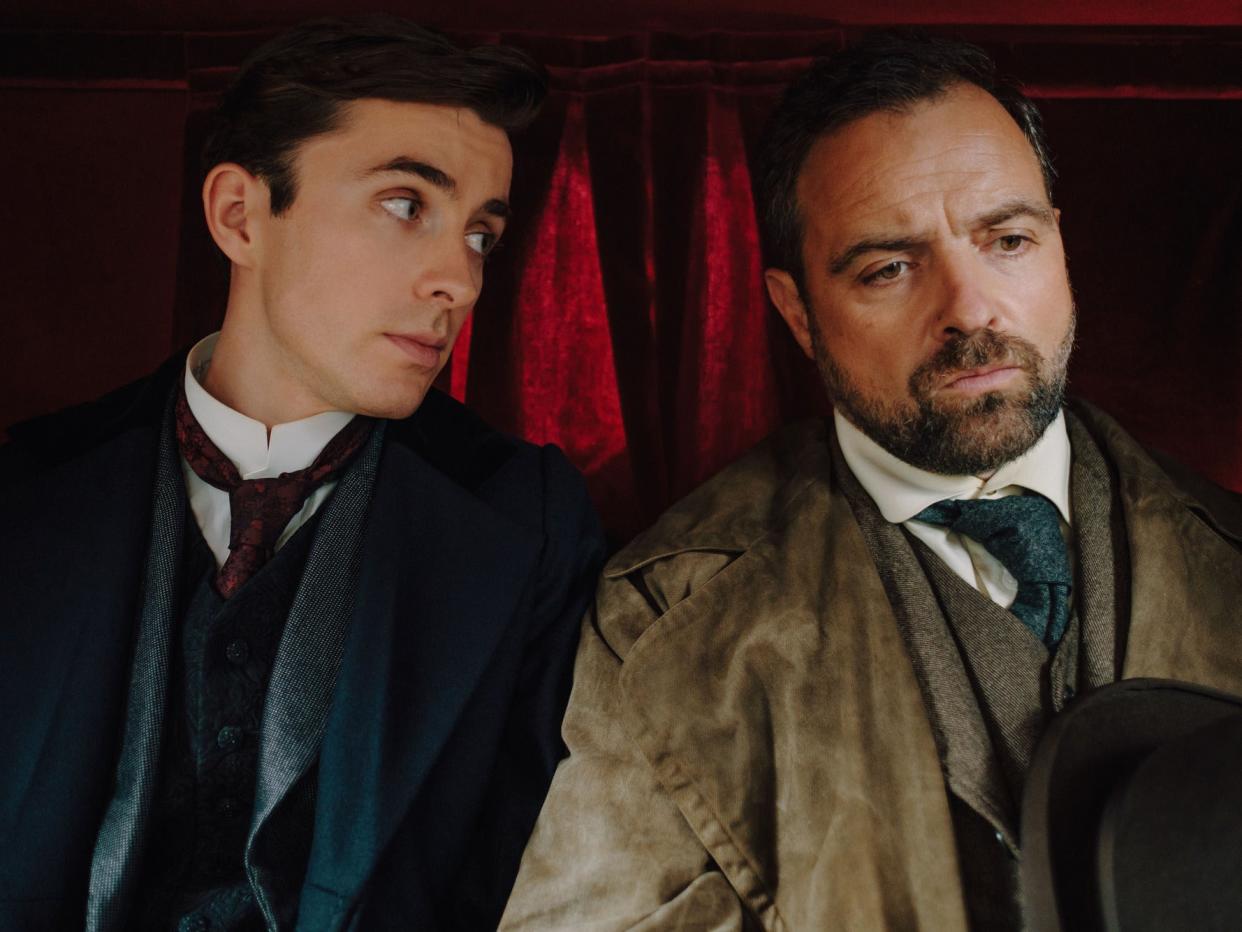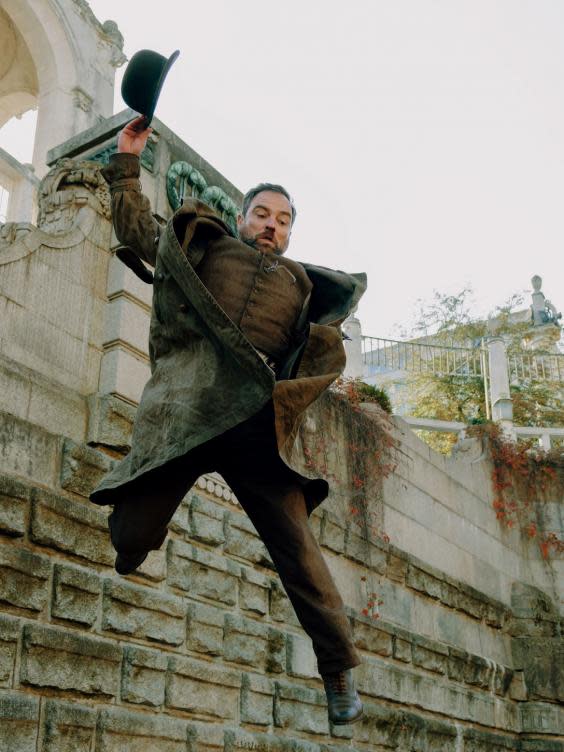Vienna Blood review: As rich and textured as the finest apple strudel

Even if Vienna Blood had nothing else going for it, it would still be worth watching simply for the superb, cinematic-quality evocation of a stunning wintertime Vienna. And not any old stunning wintertime Vienna; Vienna, circa 1906, the bohemian capital of the polyglot Austro-Hungarian empire, symbol and engine of the artistic, psychological and musical renaissance of continental Europe during La Belle Epoque, as well as its darker political undercurrents. Why, we even get cameos from Gustav Mahler, Gustav Klimt and, naturally, Sigmund Freud. I’m just waiting for Wittgenstein to appear, or maybe the unemployed painter Adolf Hitler to turn up for some wiener schnitzel and a chat.
Many scenes are so well composed and so true to historical detail – fashions, props, waxed ‘taches – that they resemble period painting.
It’s a cop show, a police procedural, and it combines in a formulaic way the usual characteristics of all such stories and series. That’s not a bad thing, not at all, because it is the proven key to success – the viewers become co-detectives, sharing in the protagonists’ theories, disappointments and breakthroughs. When it is done well, as here, the results are exceptional and make for compelling viewing.
The makers of Vienna Blood, an Austro-British production as lavishly rich and carefully textured as the finest apple strudel, have certainly made the conventional into the exceptional. I can’t see how Steve Thompson’s adaptation of the Liebermann novels by Frank Tallis could be bettered. It’s pacy, thrilling, and imaginative, like the earlier series of the Benedict Cumberbatch-starring Sherlock, on which Thompson also worked. I especially liked the animation of Klimt’s Beethoven Frieze to evoke a psychotic episode, and there is one exceptional scene of frantic rogering, memorable because it is so extravagantly squalid and satisfyingly unerotic.
Indeed, the dark, seedier side of the Hapsburg Empire adds a bit of much needed edge to the grand ballrooms, champagne receptions and atmosphere of overfed complacency. There is just enough antisemitism to reflect the attitudes of the day – “sinister, cunning, like the rest of your race” is one throwaway insult – but not so much as to render the thing unwatchable, like when reading the Twitter feed of an especially deranged Momentum activist.
The uneasy teaming up of the two principal investigators may be a bit of a cliche, but it is well-judged. Thus we find the senior of the pair is a fairly predictable figure; the older, gruff, slightly insecure, tough and decidedly unintellectual police detective Oskar Reinhardt (Juergen Maurer in good form). As time goes on, we discover he has a troubled past, including a deceased daughter, though he seems to be laying off the booze for now.
Reinhardt’s bosses have decided that he must allow a promising young medical student to “observe” him at work, and so they foist upon him his near-opposite in outlook, background and temperament.
With considerable style, Matthew Beard plays the precocious Max Liebermann, from a wealthy British-Jewish family who have recently relocated to Austria with their “fabric emporium”. Leibermann sneaks off from his medical studies to listen to the lectures of a bloke named Sigmund Freud, and applies the new and “disreputable” science of psychoanalysis to the case he and Rheinhardt are tasked with solving. Max is the sort of chap who we hear thinking to himself: “The deeper my journey into other people’s madness, the less I know myself.” Reinhardt is more likely to kick a suspect up the opera house.
The rest of the procedural furniture is as per usual; the ratty police superintendent who winds up Reinhardt; the rival detective, von Bulow, who unnerves him; the glum pathologist drip-feeding the proceedings with clues from the dawn of forensic science; the cast of possible suspects, false leads and red herrings all present and correct. Max’s family and girlfriend are introduced to us too (Conleth Hill, Amelia Bullmore, Charlene McKenna, Luise von Finckh), though they don’t have much to do beyond being extremely bourgeois and making introductions to characters closer to gruesome events.
The gruesome event in question is an apparent suicide, but one where there is no gun, no bullet and the room is locked from the inside. There are no witnesses and few clues.

The pair get to work. Max provides the psychological profile of the killer. They discover the girl was pregnant, and that the man who did it must have something to hide – and this be a man of means and influence (of a sort that Herr Liebermann senior might mix with, and does). Rheinhardt recalls how Austrian soldiers would run out of ammunition and they’d fill their antique pistols with bits of bone as a substitute for a bullet (hence no bullet in the cadaver). A pair of forceps was used to turn the key from the wrong side of the house. The connection is made between the dead woman’s dual career as a medium and as a blackmailer of rich adulterers, and her clientele.
The killer is cornered in a carriage on the Riesenrad, the giant Ferris wheel that overlooks the city, and we’re treated to a finely shot and surprisingly believable cliffhanger ending in which Liebermann and Rheinhardt get their man, a politician on the make by the name of Holderlien (his wife had sought solace after the loss of her sister from the dead woman/medium/blackmailer).
It’s a satisfying end to a satisfying show, and – at 90 minutes – the best way to spend a dark, dank Monday night trying to escape the election. Sadly, there are only two more episodes of Vienna Blood in this run. We need much more.

 Yahoo News
Yahoo News 
